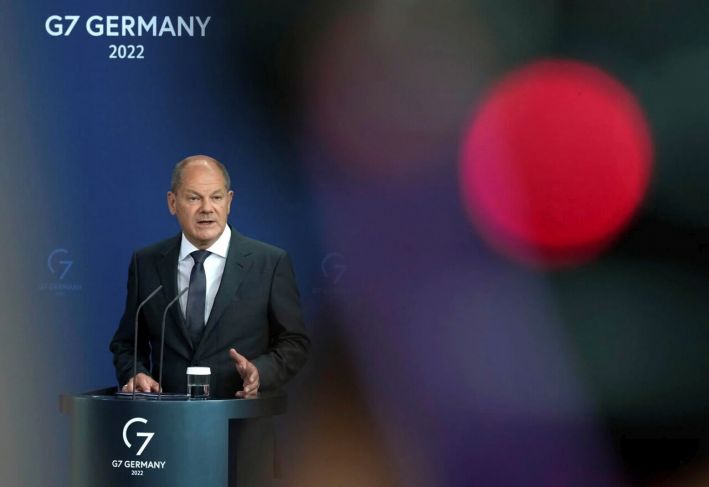A few weeks ago, I wrote a column on Ukraine fatigue in which I asked at what point would strong united Western support for Ukraine against Russia’s violent aggression in Ukraine give way to national interests and leave Ukraine in the dust.
Many have asked whether the current sanctions hurt Russia more than the West. Indeed, as Europe prepares for a winter that is not far off, the cutoff from Russian gas supplies weighs heavily on the minds of leaders who will have to deal with increasing popular discontent, a sluggish economy, energy rationing, and unemployment as industries cut back production due to lack of stable energy supplies and prices.
Germany, the economic and industrial capital of Europe, has the most to lose. It is treading a fine line between economic survival and social stability this coming winter as Russia applies its own sanctions by cutting off all gas supplies and instead selling its energy products to non-Western willing clients eager to buy cheap fuel at little or no political cost or economic consequence to them.
Against this backdrop come reports that the Canadian government has authorized Siemens Canada to return to Germany a vital gas turbine from Russia to Germany that had been sent to Montreal for maintenance prior to the imposition of the sanctions.
On the one hand, the German government pleaded for the return of the turbine that is part of the Nord Stream II pipeline linking Russia to Germany. Russia retaliated by cutting gas supplies to Germany by 60% and threatening to make the cutoff permanent unless the turbine was returned to Germany by July 11th. On July 8th, Germany began to dim streetlights, close swimming pools, and ration hot water – foretelling the hardships that Germans face this winter should Russian gas supplies be curtailed.
On the other hand, the Ukrainian government and the 1.4 million strong community of Ukrainian-Canadians objected to any contravention of sanctions, including the return of the turbine that would allow Germany to continue buying Russian gas and thus fueling its invasion of Ukraine. Demonstrations broke out across the country as Canadians of all origins protested the decision by the Canadian government on July 9th to return the turbine to Germany.
According to the Canadian Broadcasting Corporation (CBC), Robert Habeck, Germany's finance minister and deputy chancellor, has acknowledged that his country made a "grievous mistake" when it allowed itself to become so dependent on Russian energy. Habeck acknowledged that the turbine may simply be a pretext Russian President Vladimir Putin is using to blackmail Germany with energy shortages. German Chancellor Olaf Scholz has openly said the same.
This leads me to ask whether sanctions can work effectively against a dictatorship in which the masses are used to shortages, public opinion is ignored, protests are put down violently, and where the government has a ready and willing international market for its energy products, minerals, and weapons.
Conversely, can Western democracies deal with the impact of their sanctions on Russia on their own populations in democratic states where public opinion does count, human rights are respected, and freedom of speech guaranteed.
Will leaders be willing to lose power over popular discontent that sanctions are producing at home, or will they weaken sanctions to reduce the negative impact on their own economies?
Finally, are Western voters ready and willing to put their own comfort at risk for Ukrainians caught in what appears to be a long military stalemate in which their governments are unable or unwilling to try to bring to an end militarily? Or are they more concerned with their own comfort and welfare at the cost of millions of refugees and tens of thousands of lives.
As well, can sanctions be affected if only applied to Russia and not to Russian client states?
These questions will linger long after this conflict ends and will have to be considered when the next round of sanctions is mounted against another aggressor.
Keep reading: Does Democracy Exist?
Edition: Estefanía Cardeña
Sarah Schleper se retiró esquiando con su niño en brazos; 14 años después ambos competirán en el mismo certamen
La Jornada
Estudiantes del plantel recibirán la beca Gertrudis Bocanegra
La Jornada
El diplomático destacó la colaboración entre ambos países en el combate al tráfico de drogas y armas
Arturo Sánchez Jiménez
Conmemorarán al autor chiapaneco con cartelera cultural y homenajes en Bellas Artes y en la Cámara de Diputados
La Jornada
